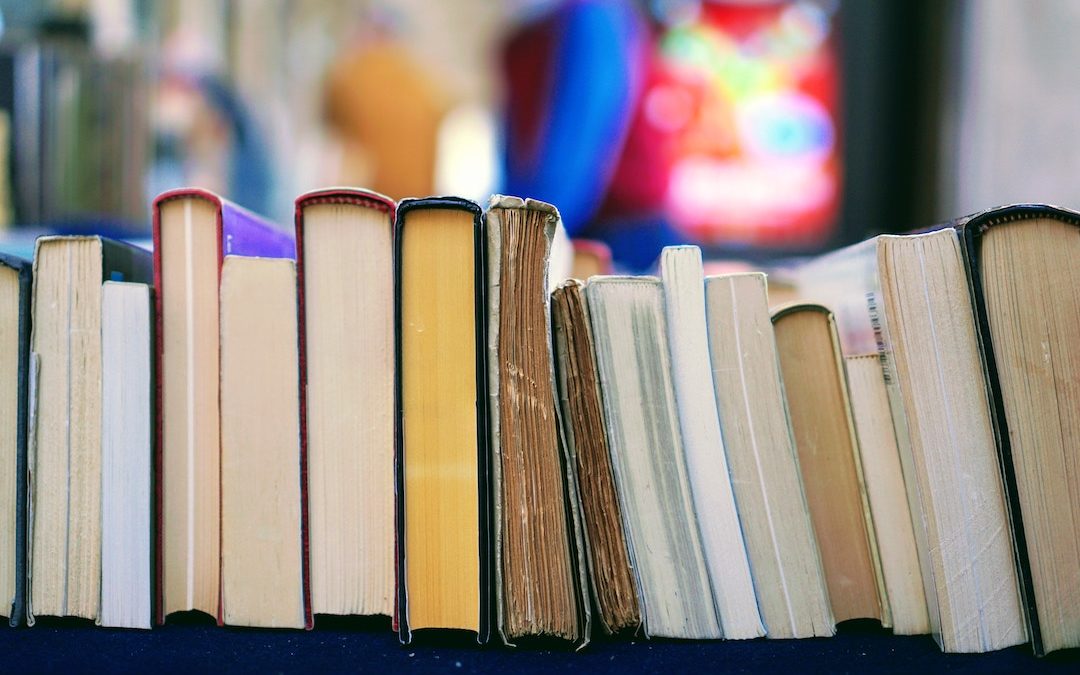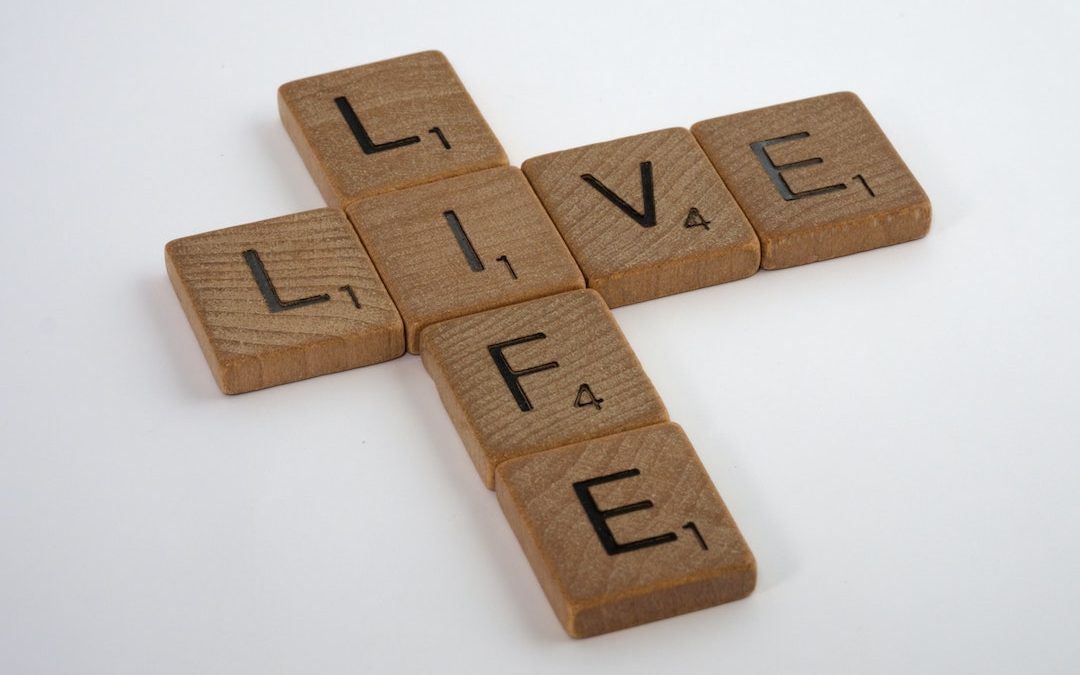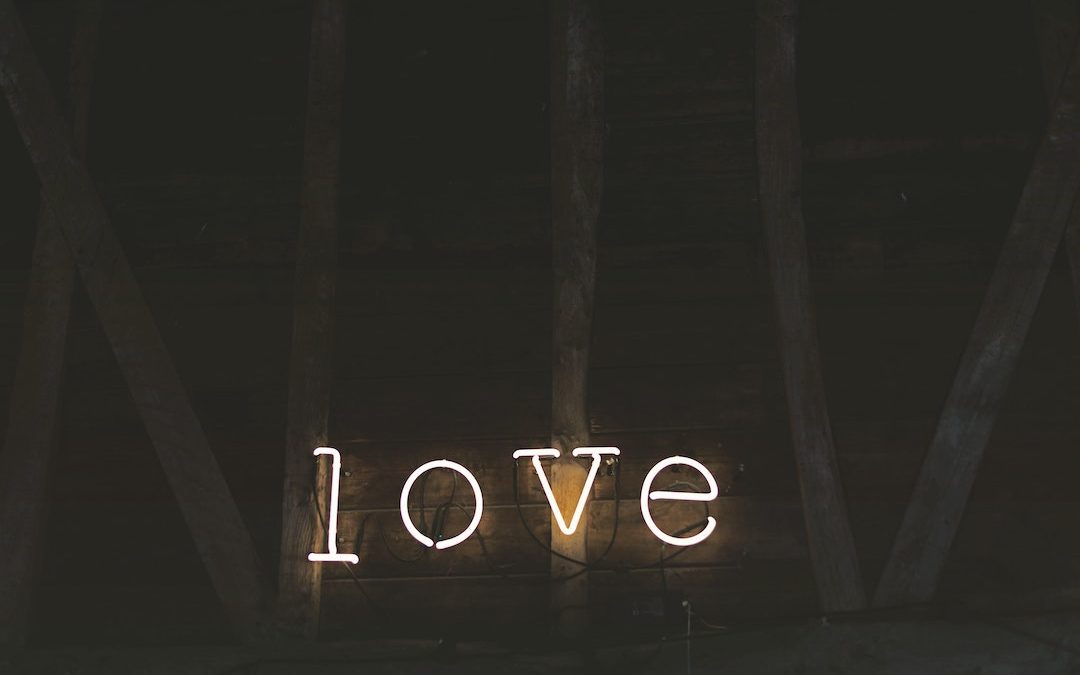
by Rachel Toalson | This Writer Life
My first book, a middle grade novel in verse, was written in tiny fifteen- or twenty-minute windows, back when my kids were very young. I had a newborn, two 3-year-olds (twins—so double trouble), a 5-year-old, a 6-year-old, an 8-year-old, and not a lot of time—obviously.
But I had a story that needed to get out, so I did what I could to jot it down between bedtime and the next newborn feeding.
When I shared this information at the book launch party for that book (The Colors of the Rain, which published in 2018), someone asked, “How do you keep a plot line going in only fifteen minutes a day?”
It’s a good question, and one that I think is probably on the minds (or in the Secret Fears Box in the brain) of many authors who don’t have hours at their disposal to write on their works in progress. Or those of us who take a while to write our books. We don’t want to rush stories. They need time and space to grow and develop.
But how do you give them the time and space they need without losing sight of where you’re going?
I’m in a different place now. I have more time to write. But there are still times when I’ve had to put aside a manuscript for weeks or even months, because of deadlines that come calling. And in a collaboration I’m working on with another author, sometimes I don’t write a chapter with my character for weeks.
How do you keep a plot line going? How do you remember who your character is? How do you make the most of the time you have, without needing to re-read everything you’ve previously written on the project?
That first book I mentioned was written, as we say in the writing world, by the seat of my pants. That means I did no brainstorming (what others call plotting). I just started writing—and the story required a LOT of revision!
Now I brainstorm (or plot) every story. It’s much easier to hold a storyline in your head for those fifteen minutes of daily writing time if you know the story already. Or if you at least have a vague path for where it’s going.
So that’s my first tip. I know it will make some writers cringe, but…
1. Brainstorm your story.
This can be whatever you make it. It can be an in-depth main character analysis followed by in depth character analyses on every other character in the book, followed by a detailed look at the setting, followed by detailed plotting. Or you can make a Pinterest board and call it your brainstorm (it’s actually surprising how well a Pinterest board satisfies the imagination and keeps a story at the top of mind).
Draw maps. Make calendars. Create whatever materials you might need to help you get right back into the story the next time you pick it up.
The more time you have to spend remembering what and who your story is about, the less time you’ll have to actually write it. And when you’re crunched for time, every minute counts!
2. Leave notes on where the next scene will go.
When I’m working on the first draft of a story, I will generally only write one chapter a day on the project, because I enjoy giving it space and some time to breathe. But this is a little trick I use in all my first drafts: After I’ve written that one chapter, I make notes on where the next chapter will start and where it will likely go. Sometimes I even write the first line of the chapter.
But what either of those things does is they propel me right back into the story the next time I pick it up. The brain is amazing; when we give it an open loop (like some notes about the next chapter), it happily plays without our even noticing.
3. Know your character.
I write character-driven fiction—but even if you don’t, knowing your character (or characters) is important for maintaining a storyline for however long it takes you to write a story. And knowing your character will, of course, make your story better.
Fill out character sheets, or make cheat sheets for quick reference, or keep a picture of him/her/them right by your computer. (Though your kids might thinks it’s weird. “Who’s that?” they might say. “A character I’m writing,” you might say. “Why do you have a picture of them and not me by your computer?” they might say. Hypothetically.)
The more you know your character, the more you know your plot, and the more you know your plot, the faster you can dive right back into a project that’s been left on the back burner for a while.
I hope these tips are helpful to you. I’d love to know any you might have for maintaining a storyline over the months and years it takes to write a book!

by Rachel Toalson | Books
1. Reading: I recently finished Karah Sutton’s magical middle grade debut, A Wolf for a Spell, and it was delightfully enchanting! Full of magic and wolves and Baba Yaga and love and the power of community. I couldn’t wait to share it with my eight-year-old (who’s reading it now). Sutton has a new book coming out in October, called The Song of the Swan, a retelling of Swan Lake. It’s definitely on my to-be-read list!
2. Reading: You absolutely must not miss Jewell Parker Rhodes’s newest middle grade book, Black Brother, Black Brother. I flew through this one! It was poetic and profound and hard-hitting and heartfelt…everything a middle grade novel should be! Rhodes is also the author of Towers Falling and Ghost Boys. This one takes its place as my favorite, though. I even added it to the slides I use when visiting schools, as one of the books that shape me today. Read it and re-read it. I will be!
3. Watching: I don’t know what it is about Apple, but they have a team of writers who know how to write shows! My husband and I just started watching a new Apple series called Shrinking, starring Jason Segel, Harrison Ford, and Jessica Williams. It is SO GOOD! Sorry for shouting. But it really is. You will laugh, cry, and laugh some more. Apple has a corner on heartfelt comedies!
4. Reading: On the young adult end, you must pick up Emily X. R. Pan’s An Arrow to the Moon, which is pitched as Romeo and Juliet meets Chinese mythology. It was phenomenal. Pan has a poetic way with words and knows how to craft characters that live on in your imagination. Pan also wrote The Astonishing Color of After, which is still my favorite book of hers.
5. Reading: If you love mysteries, you must do yourself a favor and pick up Maureen Johnson’s Truly Devious series. I recently finished the third book, The Hand on the Wall, after flying through the first two. Her main character, Stevie Bell, is hilarious (dry humor is my favorite) and awkward and just wonderful. I know this series will end, as all series must, but I don’t want to leave Stevie behind! Anyway, check out the Truly Devious series. You’ll be wonderfully enthralled for weeks!

by Rachel Toalson | Wing Chair Musings
There comes this moment, before every big event in my life, where I have wondered, Am I ready for this? Is this the right thing?
It’s not a gentle wondering, either. It’s a loud, hot, cold, hot, cold, numb, hot hot hot kind of wondering. A spiral of wondering that tornadoes down to a funnel that drips into a bucket labeled “Probably Not.” (That may seen a tad melodramatic—but such is life with an anxiety disorder!) An endless wondering that darts in and out of moments for days or even weeks leading up to a life-changing event.
I remember it before my wedding almost twenty years ago. As I stretched out on my childhood bed and talked to my fiancé on the phone, I was blasted by the sudden thought: Am I doing the right thing? Am I ready to grow up? Do I even want to be married?
I remember it on the way to the hospital before the birth of my first child, and then the second, the third, the fourth and fifth together, the sixth: Are we crazy to think we could do this?
I remember it before every book has published.
We all experience this, in one way or another. Maybe not as dramatically as I do. But it’s a natural part of growing and stepping into something new and a little bit scary and entirely unpredictable, because there’s no guarantee it will work out.
Am I ready for this? we think.
Sometimes the answer is yes. I love those times, when I feel like I’ve prepared myself as much as I can, when I feel confident and in control, when I have a pretty good idea of the projected outcome. I think I’ve experienced that once in my life. Maybe twice.
Most of the time, I reach these giant (for me) turning points in my life story, and I don’t feel prepared. I read more than twenty parenting books before we had our first kid, and when the doctor released me from the hospital with this tiny screaming infant, I still didn’t know what I was doing. I was unprepared, even though I’d prepared.
I feel unprepared a lot.
I’m coming to understand that’s not a bad thing.
It’s probably no surprise to you that I am change-averse. I’ve written before that I thrive on routine and predictability—and change is certainly not predictable (though my response to it is!). But change is also necessary in life. No one goes through life without experiencing change. The physical body is proof of that.
Change can be scary. Major life events can be, too. We hardly ever feel prepared. We’ll probably (like many of the characters in stories) wonder, for just a moment, if we can maintain the status quo, keep living the same life and still be happy. Hold off until we’re ready.
The Spanish philosopher José Ortega once said, “We cannot put off living until we’re ready.”
I agree.
Sometimes we’re thrown into something before we’re completely ready. But that’s the beauty of humanity—we grow. We adapt. We surprise ourselves with our ability to carry on. To really live. To thrive and continue becoming ourselves, one unprepared step at a time.
We’re like characters in a real-life story. The Major Life Event is our catalyst, before change begins. We get to walk through our own emotional journey and become different people on the other side. I am certainly a much different person than I was pre-marriage and pre-kids. I like this version a lot more, I must confess.
Next time you and I face one of these crossroads where we could continue on as is or step into a future for which we’re not completely prepared, I hope we say, Bring it on. I can’t wait to see who I am on the other side.
Have a happy March of growth and renewal.
Here are some of my best tips for embracing change:
1. Keep a journal
I know, this is my go-to tip for just about everything (I even talk about it at school visits). So if you’ve already heard my spiel, go ahead and listen again.
When we record these feelings of inadequacy and unpreparedness in journals, we not only get them off our chests, we also give ourselves a gift: the gift of hindsight. Memories aren’t always accurate, when they stay trapped in our minds. The next time we face another life event for which we feel inadequate and unprepared, we may not remember that we felt the exact same way about this other thing that turned out just fine (or not—that’s also useful information). But if we recorded it in a journal, we can look back and probably feel a little relief that we’ve been here before and we made it out alive.
2. Play a game called Change the Small Stuff
This is a little game I play with myself, to prove that change isn’t going to kill me.
I am such a creature of habit. I get up at the same time every morning, I do my morning routine in the same order, I write at the same time every day, I eat dinner at the same time every evening with my family. I even run the same routes through my city.
But one morning I changed my running route. I made my morning tea before I meditated. I wrote my daily poem after I edited another manuscript. And it was awful. All of it. But you know what? The next time I played the game with myself, it was one percent less awful, because I had grown one percent.
We can adapt to change, too (even if sometimes we have to repeat that as a mantra).
3. Talk to a therapist
You may get tired of me pointing, always, to therapy—but you must know that it’s only because I love you and I want you to live the best life you can and I know how valuable therapy can be for changing our mindsets and helping us grow. I think we can all benefit from therapy, no matter what we’ve been through in our lives.
And the truth is, not every instance of life throwing us into something for which we feel unprepared will be good. Some will be awful. And completely out of our control. And we have to make sure we take care of our hearts and minds. Talking with a licensed therapist or a psychologist or psychiatrist can help us come to terms with ourselves, our circumstances, and our future.
Get more writing like this by signing up for my newsletter at https://racheltoalson.podia.com/newsletter.

by Rachel Toalson | This Writer Life, Writing tips
At any given time, I’m working on between three and five manuscripts.
Some people’s jaws drop when they hear a thing like that (probably because the average person can hardly imagine working on one manuscript!).
Maybe it’s a leftover consequence of my decade in journalism, when I was balancing feature stories, in-depth investigative series, and the daily news articles that popped up unexpectedly. Or maybe it began even before that. For as long as I remember I’ve had lots of plates to juggle.
In middle school I played every sport imaginable, worked hard to get all As, played the clarinet, and wrote stories on the side. In high school I added to that class president, a boyfriend, and a part-time job. In college I had all of that (minus the boyfriend—I was more focused on education) plus another part-time job (two total—which still didn’t pay like a full-time job), a minimum of four writing-intensive classes per semester, and a band I sang and played guitar in.
I’m a busybody. I like to stay active. My brain works best when it has more than one thing to focus on. Otherwise it can get very anxious and obsessive.
Not everyone works this way. So the first thing I want you to know is that your process is your process. If you don’t enjoy juggling multiple projects at one time, that’s okay. Or if you’ve tried it before and it just doesn’t work for you, that’s okay, too. We are all different people with different brains, and one person’s way doesn’t make another person’s way wrong.
But I do have some tips that have been helpful for me, if you’d like to try (or try again) balancing multiple projects.
1. Make sure they’re different.
When I pick up new projects to write, I try my best to make sure they’re different genres, different age groups, or different narrators from the projects I’m already working on. For example, right now I’m working on two young adult literary books from a female perspective, a middle grade realistic fantasy book from a female perspective, a middle grade horror book from a male perspective, and a young adult biography in verse from a female perspective.
Why am I working on two young adult literary novels at once? Because one is a first draft and the other is a much later draft. One has a female voice that is angry and sarcastic; the other has a female voice that is curious and exploratory. They are in different stages, and they’re different people.
The pitfall we have to look out for when balancing multiple projects is making sure the narrator’s voice or the narrative voice of the story doesn’t sound the same in both. So we have to make sure we know our characters and/or the tone or voice we’re trying to capture in the story.
2. Don’t sacrifice one for the other.
What I mean by this is don’t move on to project #2 just because it’s the new and shiny idea. Writers are notorious for hitting a wall in project #1 and picking up a new project because it’s new and exciting—but never finishing project #1. So if you pick up a new project, make sure you also have plans to finish your first project. It deserves at least that.
It is, of course, perfectly fine to spend more time or an unequal amount of time on project #2, because it’s shiny and new and feels easy—at least much easier than the old project. This could be part of your process and strategy: spending 70 percent of your time on the new project and 30 percent on the old, until the old is done. Because eventually project #2 will get old, and you’ll need to pick up another project to spend 70 percent of your time on.
Do what works for you. Just don’t abandon a story that deserves to be told.
3. Let your brain lead the way.
The subconscious mind does a lot of work behind the scenes, without our even realizing it. That’s why I love balancing multiple projects. It allows my brain to play with a lot of different possibilities. Many times, when I’m writing on project #1, I’ll have a major breakthrough for project #2, and vice versa. The creative brain is a mysterious thing. Inspiration comes at the most unexpected of times.
That said, make sure you have a means of capturing these breakthroughs and little ideas the brain sends. I keep all mine in an idea journal, to revisit later, when I need them.
You may try balancing multiple projects and it absolutely doesn’t work for you—and that’s okay! Keep writing the way that works for you.
Or you may try it and think it’s the best thing ever.
To which I say: Welcome to the club.
Have a fantastic month of creating.

by Rachel Toalson | Books
1. Reading: I recently finished the YA book, My Eyes are Up Here, by Laura Zimmerman, and it was SO GOOD! It was funny, emotional, fun, and romantic and raised awareness about an important issue with access—namely, how big-breasted young women can’t find clothes that will fit them. I loved everything about this book. Zimmerman is also the author of Just Do This One Thing For Me, which will release in August of this year. I can’t wait!
2. Reading: Leslie Connor is one of my favorite middle grade authors, and I just finished her newest book, Anybody Here Seen Frenchie? It was lovely and heartfelt. Featuring a character who is differently abled, and told in dual voices, it was compulsively readable. I’d read it again. And I’ve put it on my kids’ reading lists as well. Connor’s book, A Home for Goddesses and Dogs, is still my favorite, but this one’s a close second, along with The Truth as Told By Mason Buttle.
3. Watching: My husband and I just finished watching Apple TV’s Bad Sisters. This was the second time watching through for me—which was great, because I picked up on some subtleties that I missed the first time around. If you haven’t watched this series, you owe it to yourself to watch. It’s cringey and emotional and funny and addicting.
4. Reading: One of my favorite reads this month was Hope Jahren’s The Story of More: How We Got to Climate Change and Where to Go From Here. While she has an adult version of the book, I read the one for young readers, and it was so well done. Jahren explains things in ways young people will understand. And it wasn’t just information, it was also part personal story and part entertaining vignettes. Highly recommended to read with children. This will be going on all my kids’ summer reading lists this year. Jahren is also the author of Lab Girl, which is a memoir of her life as a scientist in a male-dominated field. It was equally as good as this one.
5. Watching: I recently had a birthday Sabbatical week, so I spent some extra time watching a few shows (and reading, of course). One of the best shows I watched (binged on, really—and I very rarely binge on shows) was Netflix’s Wednesday. This show was delightful. Macabre, sarcastic, dark, entertaining…everything director Tim Burton is known for (and Danny Elfman did the music—the perfect pair). Wednesday Addams is one of my favorite characters now. It’s still a dream of mine to have Tim Burton direct a movie for my book The Woods, and for Danny Elfman to write the musical score. Wednesday renewed that dream in a very big way!
6. Bonus: Reading: I can’t say enough about the lovely picture book, Dear Mr. Dickens, by Nancy Churnin, which was a 2022 Sydney Taylor honor book. It tells the story of Eliza Davis, who wrote to Charles Dickens about the way he portrayed Jewish people in his books. I read this story aloud to my kids; it was my first time reading it, and I got (probably predictably) emotional. I love Charles Dickens (I fell in love with him in high school, because, as an economically disadvantaged kid, he gave voice to my frustrations and struggles), and this story is just phenomenal—and true. Check it out. You won’t regret it.






